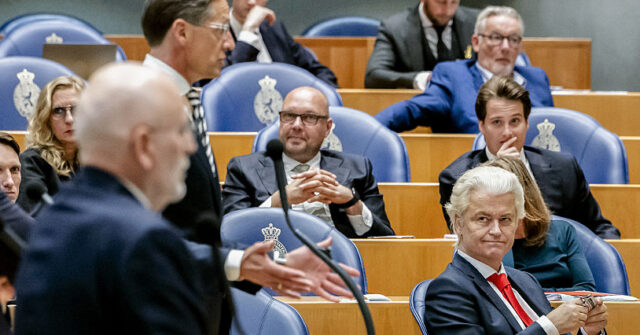The Dutch caretaker government has set a mammoth near-five-month election campaign for the coming snap general election after anti-Islamification campaigner Geert Wilders collapsed the government over asylum policy failures.
Dutch citizens will vote to choose their new parliament on October 29th, the caretaker government said as it accepted the advice of the national election council. The campaign period — a week short of five months — is even longer than the last snap election, which took place in November 2023 some four and a half months after the last Mark Rutte government collapsed.
Broadcaster NOS states the caretaker Minister of the Interior explained away the long wait to get a new government, stating while other countries were able to hold elections faster, in the Netherlands there are many jobs to do before polling day, and national holidays at the end of summer further push things back. She said: “we think it’s important that people who live abroad can also vote. And that new political parties are given the opportunity to register.”
The delay will also give parties time to write an election manifesto, to hire polling stations, and to train volunteers to run them. By contrast, snap elections in the United Kingdom have been called and run within two months in recent memory.
The fresh elections were called after Party For Freedom (PVV) leader Geert Wilders warned ongoing attempts to frustrate his border control agenda would result in him withdrawing his party from the government, which would cause it to collapse. He followed through on the threat just a week later, blaming his erstwhile coalition colleagues for going back on their founding agreement.
Wilders’ political opponents — for they are now in electioneering mode — blamed him for walking away from the government selfishly, but senior left-wing Dutch political figure Ronald Plasterk instead blamed the precedent-busting formation of the outgoing government. In normal times the leader of the largest party gets the Prime Minister job — Geert Wilders in this case — but the other parties would not acquiesce, forcing a technocrat stand-in.
Plasterk wrote today:
The biggest mistake was that party leaders blocked Wilders from becoming prime minister at the time. It is customary for the leader of the largest governing party to become prime minister, and there was no reason not to follow that custom.
There was some muttering about the reputation of the Netherlands abroad, but Italy and the United States and several other countries also have right-wing government leaders. This blockade was particularly unwise… if Wilders had been Prime Minister, with exactly the same [Coalition] Agreement and the same ministers, the cabinet would not have fallen. The party leaders who prevented that at the time have that on their conscience.
Read the full article here


